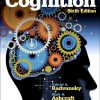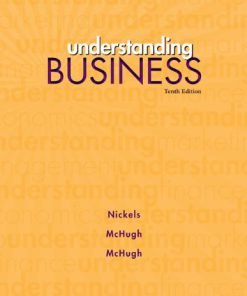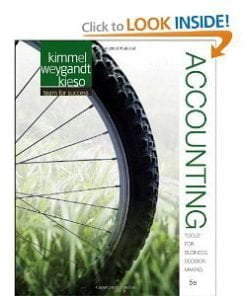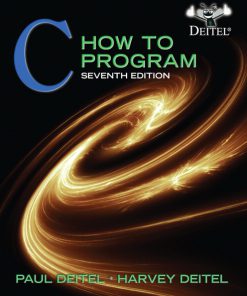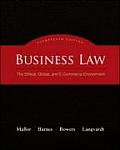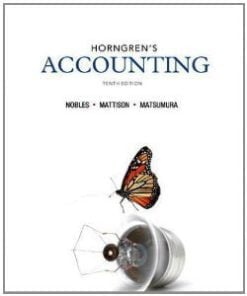Developmental Mathematics 3rd Edition Martin Gay Solutions Manual
$35.00 Original price was: $35.00.$26.50Current price is: $26.50.
Developmental Mathematics 3rd Edition Martin Gay Solutions Manual
Instant download Developmental Mathematics 3rd Edition Martin Gay Solutions Manual pdf docx epub after payment.
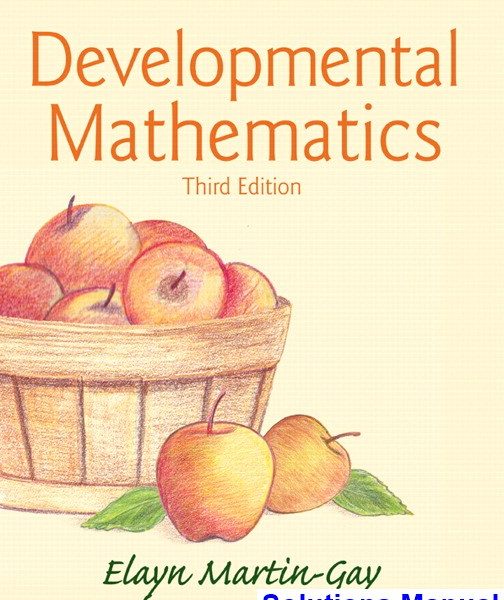
Product details:
- ISBN-10 : 032198580X
- ISBN-13 : 978-0321985804
- Author: Elayn Martin-Gay
Elayn Martin-Gay’s developmental math program is motivated by her firm belief that every student can succeed. Martin-Gay’s focus on the student shapes her clear, accessible writing, inspires her constant pedagogical innovations, and contributes to the popularity and effectiveness of her video resources. This revision of Martin-Gay’s worktext series continues her focus on students and what they need to be successful.
Table Of Contents:
- The Whole Numbers
- 1.1 Study Skills Tips for Success in Mathematics
- 1.2 Place Value, Names, and Reading Tables
- 1.3 Adding Whole Numbers and Perimeter
- 1.4 Subtracting Whole Numbers
- 1.5 Rounding and Estimating
- 1.6 Multiplying Whole Numbers and Area
- 1.7 Dividing Whole Numbers
- Integrated Review-Operations on Whole Numbers
- 1.8 An Introduction to Problem Solving
- 1.9 Exponents, Square Roots, and Order of Operations
- Multiplying and Dividing Fractions
- 2.1 Introduction to Fractions and Mixed Numbers
- 2.2 Factors and Prime Factorization
- 2.3 Simplest Form of a Fraction
- Integrated Review-Summary on Fractions, Mixed Numbers, and Factors
- 2.4 Multiplying Fractions and Mixed Numbers
- 2.5 Dividing Fractions and Mixed Numbers
- Adding and Subtracting Fractions
- 3.1 Adding and Subtracting Like Fractions
- 3.2 Least Common Multiple
- 3.3 Adding and Subtracting Unlike Fractions
- Integrated Review-Operations on Fractions and Mixed Numbers
- 3.4 Adding and Subtracting Mixed Numbers
- 3.5 Order, Exponents, and the Order of Operations
- 3.6 Fractions and Problem Solving
- Decimals
- 4.1 Introduction to Decimals
- 4.2 Order and Rounding
- 4.3 Adding and Subtracting Decimals
- 4.4 Multiplying Decimals and Circumference of a Circle
- Integrated Review-Operations on Decimals
- 4.5 Dividing Decimals and Order of Operations
- 4.6 Fractions and Decimals
- Ratio, Proportion, and Percent
- 5.1 Ratio and Proportion
- 5.2 Introduction to Percent
- 5.3 Percents and Fractions
- 5.4 Solving Percent Problems Using Equations
- 5.5 Solving Percent Problems Using Proportions
- Integrated Review-Ratio, Proportion, and Percent
- 5.6 Applications of Percent
- 5.7 Percent and Problem Solving: Sales Tax, Commission, and Discount
- 5.8 Percent and Problem Solving: Interest
- Geometry
- 6.1 Lines and Angles
- 6.2 Plane Figures and Solid
- 6.3 Perimeter
- 6.4 Area
- 6.5 Volume
- 6.6 Square roots and the Pythagorean Theorem
- 6.7 Congruent and Similar Triangles
- Reading Graphs and Introductions to Statistics and Probability
- 7.1 Pictographs, Bar Graphs, Histograms, and Line Graphs
- 7.2 Circle Graphs
- Integrated Review- Reading Graphs
- 7.3 Mean, Median, Mode, and Range
- 7.4 Counting and Introduction to Probability
- Real Numbers and Introductions to Algebra
- 8.1 Symbols and Sets of Numbers
- 8.2 Exponents, Order of Operations, and Variable Expressions
- 8.3 Adding Real Numbers
- 8.4 Subtracting Real Numbers
- Integrated Review-Operations on Real Numbers
- 8.5 Multiplying and Dividing Real Numbers
- 8.6 Properties of Real Numbers
- 8.7 Simplifying Expressions
- Equations, Inequalities, and Problem Solving
- 9.1 The Addition Property of Equality
- 9.2 The Multiplication Property of Equality
- 9.3 Further Solving Linear Equations
- Integrated Review-Solving Linear Equations
- 9.4 Further Problem Solving
- 9.5 Formulas and Problem Solving
- 9.6 Percent and Mixture Problem Solving
- 9.7 Linear Inequalities and Problem Solving
- Graphing Equations and Inequalities
- 10.1 The Rectangular Coordinate System
- 10.2 Graphing Linear Equations
- 10.4 Slope and Rate of Change
- 10.5 Equations of Lines
- Integrated Review-Summary on Linear Equations
- 10.6 Introduction to Functions
- 10.7 Graphing Linear Inequalities in Two Variables
- 10.8 Direct and Inverse Variation
- Systems of Equations
- 11.1 Solving Systems of Linear Equations by Graphing
- 11.2 Solving Systems of Linear Equations by Substitution
- 11.3 Solving Systems of Linear Equations by Addition
- Integrated Review-Summary on Solving Systems of Equations
- 11.4 Systems of Linear Equations and Problem Solving
- Exponents and Polynomials
- 12.1 Exponents
- 12.2 Negative Exponents and Scientific Notation
- 12.3 Introduction to Polynomials
- 12.4 Adding and Subtracting Polynomials
- 12.5 Multiplying Polynomials
- 12.6 Special Products
- Integrated Review- Exponents and Operations on Polynomials
- 12.7 Dividing Polynomials
- Factoring Polynomials
- 13.1 The Greatest Common Factor and Factoring by Grouping
- 13.2 Factoring Trinomials of the Form x2 + bx + c
- 13.3 Factoring Trinomials of the Form ax2 +bx + c
- 13.4 Factoring Trinomials of the Form ax2 + bx + c by Grouping
- 13.5 Factoring Perfect Square Trinomials and the Difference of Two Squares
- Integrated Review-Choosing a Factoring Strategy
- 13.6 Solving Quadratic Equations by Factoring
- 13.7 Quadratic Equations and Problem Solving
- Rational Expressions
- 14.1 Simplifying Rational Expressions
- 14.2 Multiplying and Dividing Rational Expressions
- 14.3 Adding and Subtracting Rational Expressions with the Same Denominator and Least Common Denominator
- 14.4 Adding and Subtracting Rational Expressions with Different Denominators
- 14.5 Solving Equations Containing Rational Expressions
- Integrated Review-Summary on Rational Expressions
- 14.6 Rational Equations and Problem Solving
- 14.7 Simplifying Complex Fractions
- Roots and Radicals
- 15.1 Introduction to Radicals
- 15.2 Simplifying Radicals
- 15.3 Adding and Subtracting Radicals
- 15.4 Multiplying and Dividing Radicals
- Integrated Review-Simplifying Radicals
- 15.5 Solving Equations Containing Radicals
- 15.6 Radical Equations and Problem Solving
- Quadratic Equations and Nonlinear Graphs
- 16.1 Solving Quadratic Equations by the Square Root Property
- 16.2 Solving Quadratic Equations by Completing the Square
- 16.3 Solving Quadratic Equations by the Quadratic Formula
- Integrated Review-Summary on Solving Quadratic Equations
- 16.4 Graphing Quadratic Equations in Two Variables
- 16.5 Interval Notation, Finding Domains and Ranges from Graphs, and Graphing Piecewise-Defined Functions
- Appendix A: Further Algebra Topics
- Appendix B: Tables
People also search:
developmental math jobs
mathematics development in early childhood
developmental mathematics basic mathematics and algebra
development of mathematics reading answers
development of mathematics throughout history
Related products
Solution Manual
Understanding Business Nickels 10th Edition Solutions Manual
Solution Manual
Solution manual for Accounting: Tools for Business Decision Making Kimmel Weygandt Kieso 5th Edition
Solution Manual
Solution Manual
Management Information Systems Managing the Digital Firm Laudon 14th Edition Solutions Manual
Solution Manual
International Business Competing in the Global Marketplace Hill 10th Edition Solutions Manual



